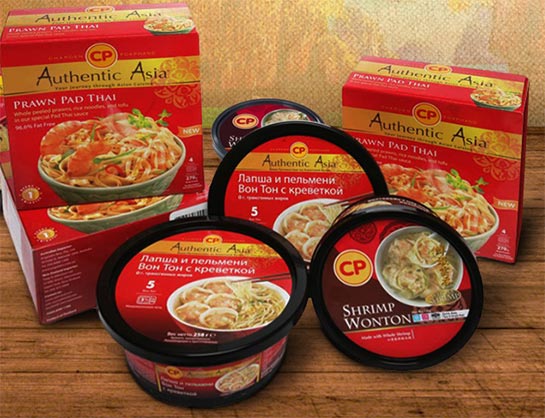While overall food exports from Thailand declined by 5.9% to $20.7 billion during the first eight months of 2016, Commerce Minister Apiradi Tantraporn anticipates that increased demand in the fourth quarter for frozen shrimp, processed chicken, canned tuna, fruits and vegetables will lift the sector into an overall sales gain for the full year.
 Purchases of Thai shrimp in overseas markets, primarily farm-raised product shipped in frozen form, are expected to rise 8% to $1.6 billion this year, with frozen and processed chicken exports likely to advance 4.5% to $2.5 billion. Meanwhile, the prediction for sales of canned tuna figures an uptick of 4% to $2.4 billion, while revenues from shipments of fruits and vegetables are poised to rise 3% to $1.6 billion.
Purchases of Thai shrimp in overseas markets, primarily farm-raised product shipped in frozen form, are expected to rise 8% to $1.6 billion this year, with frozen and processed chicken exports likely to advance 4.5% to $2.5 billion. Meanwhile, the prediction for sales of canned tuna figures an uptick of 4% to $2.4 billion, while revenues from shipments of fruits and vegetables are poised to rise 3% to $1.6 billion.
The food industry is a major export engine for the Thai economy, generating $27.2 billion in foreign exchange last year, compared to $31.34 billion rung up for exports of auto parts and $7.18 billion garnered from sales of gems and jewelry (excluding gold).
The above figures were discussed during a recent meeting called for by Chairman Apiradi among representatives of the food, and gemstone and jewelry industries.
Input from CP Chairman Dhanin
Meanwhile, Charoen Pokphand Group (CP) Chairman Dhanin Chearavanont, in an address to the Nikkei Asia 300 Global Business Forum, advised that businesses and governments in the ASEAN region would have to further embrace advanced technology to compete globally. While his company, the nation’s leading agro-industrial conglomerate and the top exporter of frozen poultry and branded shrimp products, continues to invest money to bolster high-tech efficiencies, investments are also going into enhancing employee productivity and creativity.
“For CP, nothing is more important than human resources, if we can’t develop enough people, we won’t be able to expand. Don’t worry about unemployment from robots replacing humans, as humans will work in areas robots cannot perform in,” said Dhanin.
Addressing supply, demand and production trends in the food industry, the chairman stated: “We’re not worried about global food shortages, but we have concerns that the food supply will be in surplus.”






